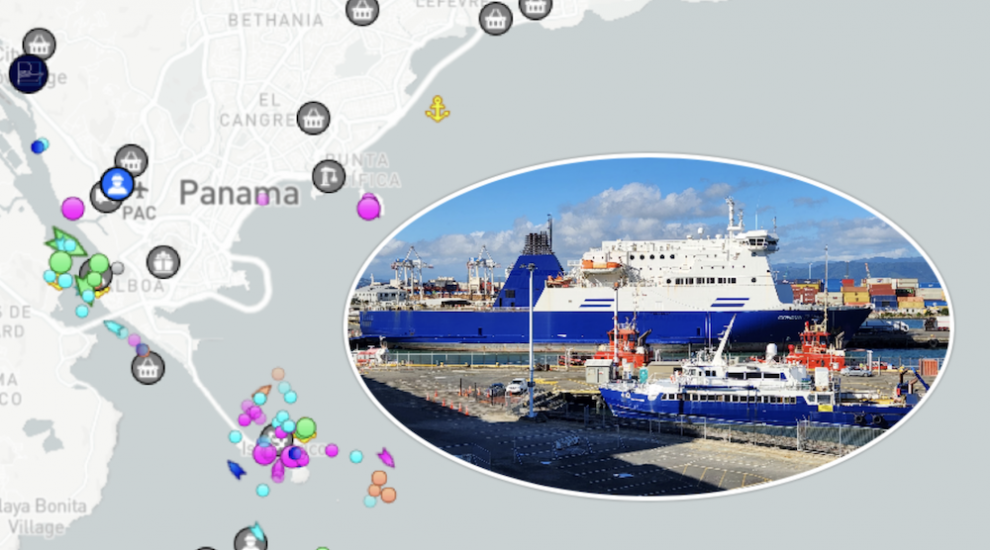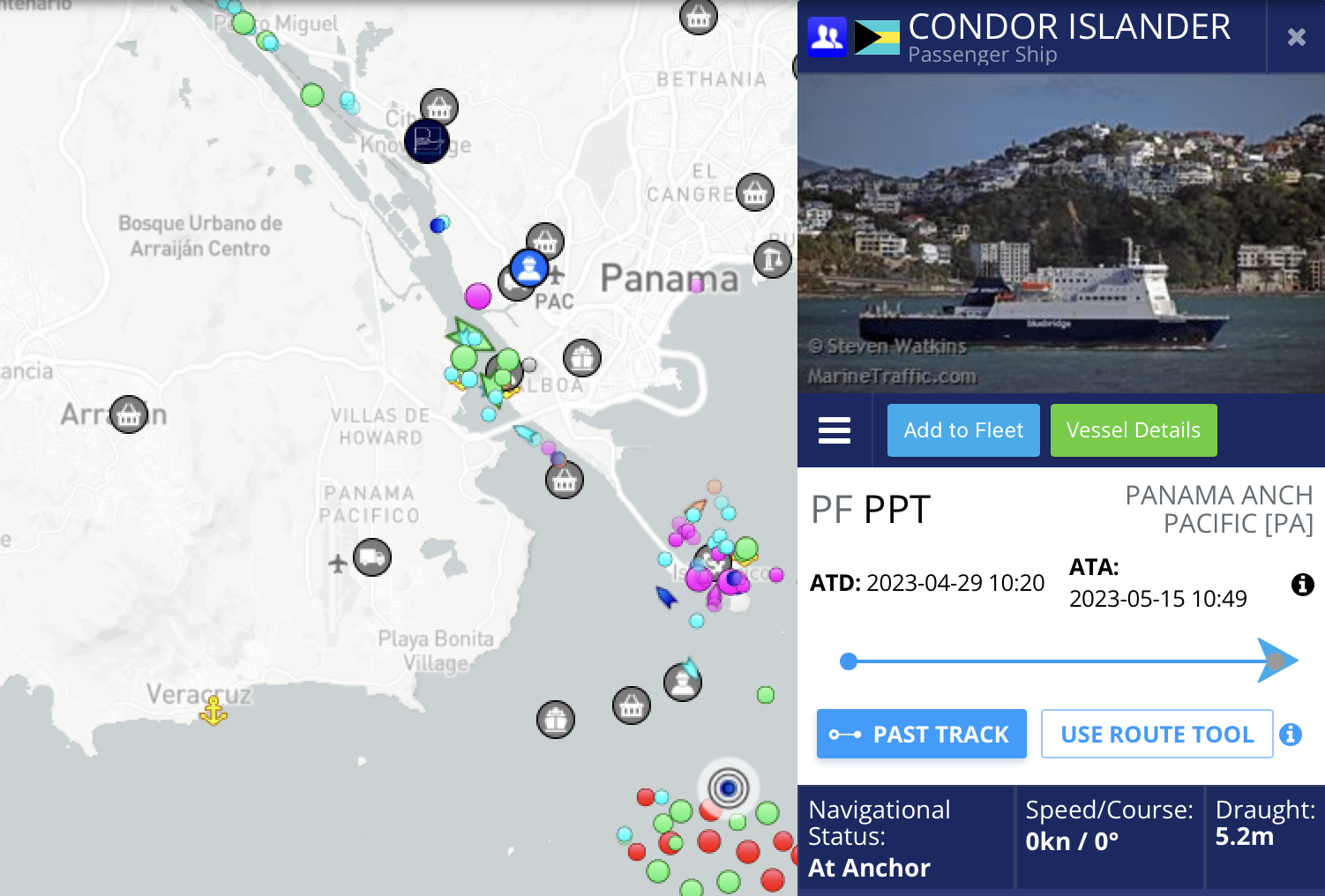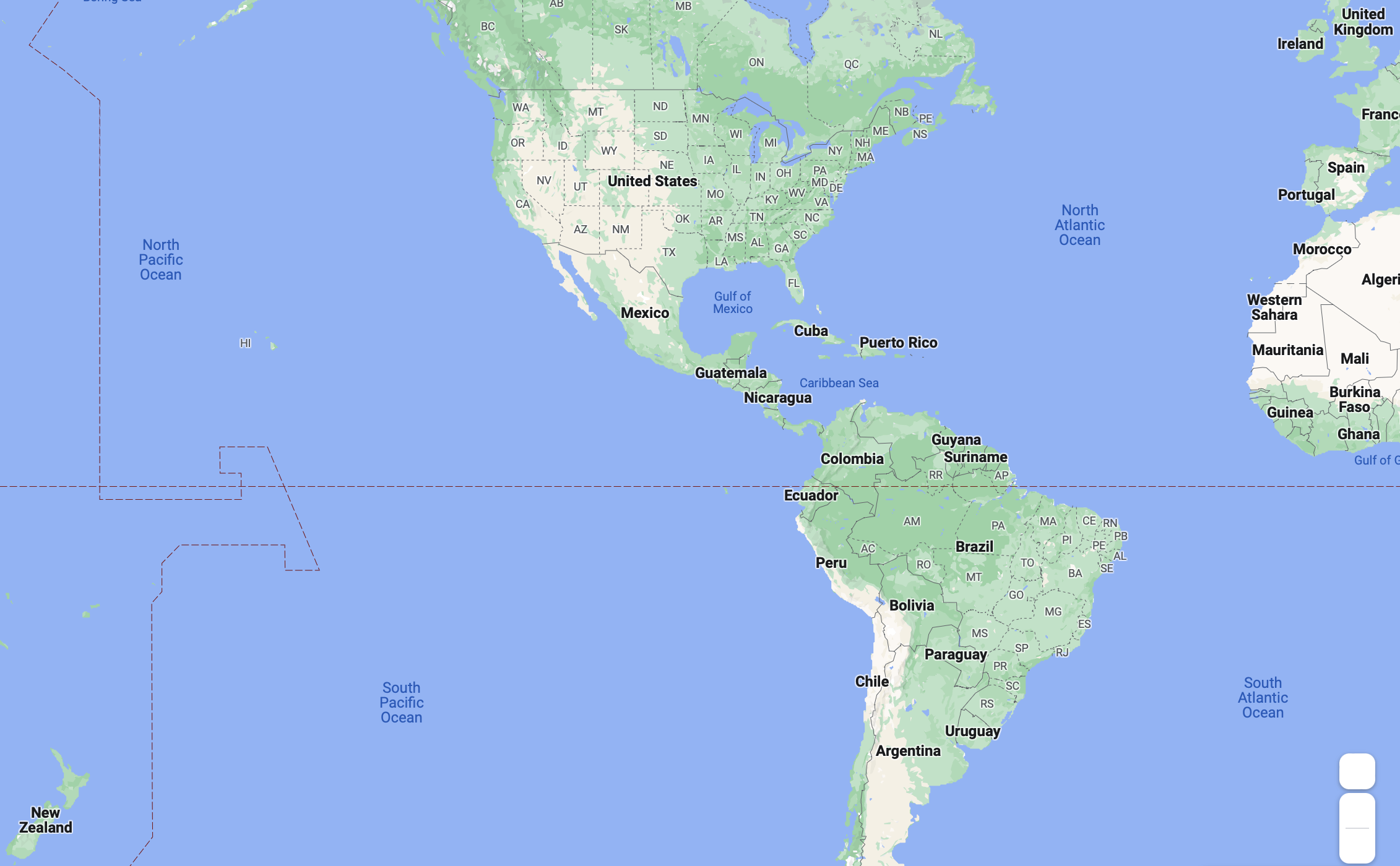


The Condor Islander appears to be making good time in her journey across the world to Guernsey, reaching the half way point earlier this week.
The former MV Straitsman left New Zealand in mid April to sail across the Atlantic Ocean to its new role as part of the Condor fleet serving the Channel Islands.
Now rebranded as the Condor Islander, it was at anchor outside the entrance to the Panama Canal on Tuesday - an iconic landmark ahead of its trans-Atlantic journey towards British waters.

Pictured: The Condor Islander left New Zealand on 15 April, and has been at sea for 15-days since leaving the port of Papeete in French Polynesia 15 days ago.
As the MV Straitsman, the ferry had served the Cook Strait for more than a decade after entering service in 2010.
Having been bought by Condor Ferries and the States of Guernsey, the vessel will enter service alongside the Commodore Clipper and Goodwill and Condor Liberation and Voyager later this year.
On arrival in British waters, the ferry will go into dry dock for two months before starting services between the islands, UK and France.

Pictured: It will take seven weeks for the Condor Islander to travel from New Zealand to the British Isles. The ferry is currently at the half way point both geographically and time-wise.
Guernsey's Policy and Resources Committee loaned Condor £26million to bolster £6million in joint equity from the States and Condor to buy the ferry.
It was originally meant to be bought through the Guernsey Investment Fund (GIF) but after that deal fell through the Civil Contingencies Authority was convened to expediate an alternative funding agreement. The CCA was required because there was a potential critical risk to the island’s supply chain if the deal wasn’t completed.
The exact nature of this ‘critical risk’ has since been questioned and the CCA released a statement explaining its position which included confirmation that "there is now no immediate or imminent risk to our supply chain”.
The CCA said it was satisfied that purchasing the vessel at this specific time was “essential and satisfied the need to act to prevent a potential emergency occurring in accordance with the Civil Contingenecies (Guernsey) Law 2012”.
Deputy Peter Ferbrache explained the decision making process in more detail in an extensive interview with Express which can be heard below:
Comments
Comments on this story express the views of the commentator only, not Bailiwick Publishing. We are unable to guarantee the accuracy of any of those comments.